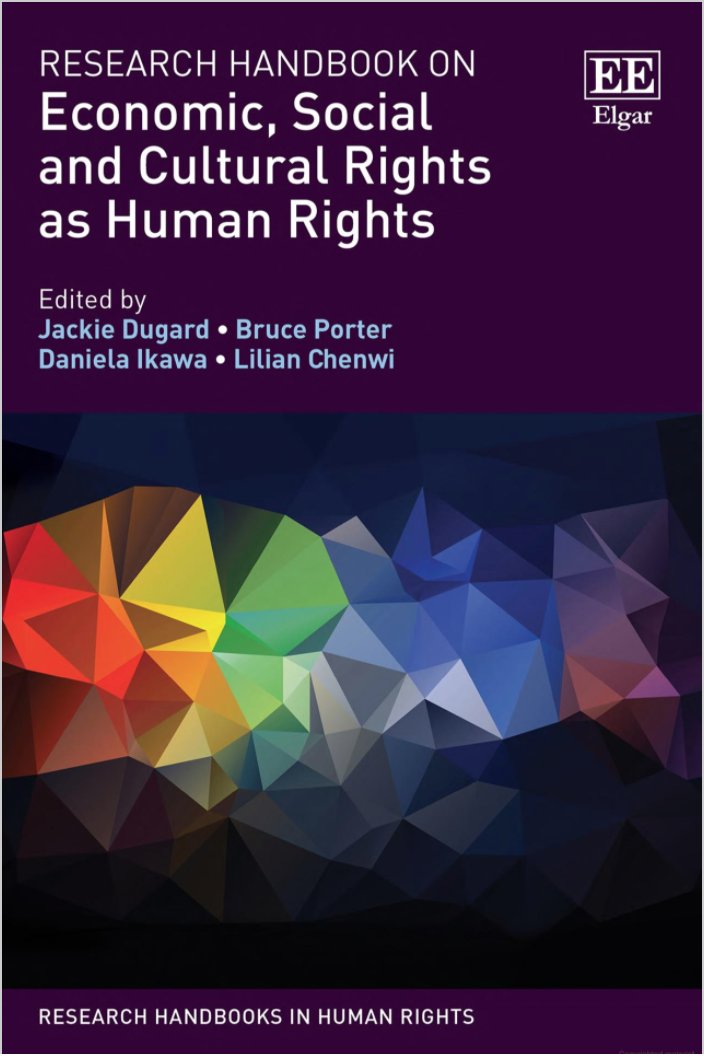This exciting new Research Handbook on Economic, Social and Cultural Rights as Human Rights, published by Edward Elgar, provides a comprehensive, cutting edge analysis of economic, social and cultural rights. It also explores the connection between these and other rights. It combines practitioner and academic perspectives—including from CESR and a number of our partners and allies—to offer an authoritative analysis of standards and jurisprudence.

Expert contributors discuss structures and mechanisms in the international, regional and domestic spheres. Chapters explore the details, interpretations and current developments of each thematic right, as well as illustrating the critical cross-cutting and fault line issues relating to economic, social and cultural rights globally. Taking a far-sighted approach, contributors critically assess the failure of dominant human rights paradigms to address economic, social and cultural rights and to create a framework for multilateral responses to emerging global threats, arguing that a robust, reinforced approach and practice is needed to meet the human rights challenges of the 2020s. Overall, the Handbook argues for an expansive and inclusive approach to economic, social and cultural rights as human rights.
In Chapter 14, CESR’s Allison Corkery and Ignacio Saiz examine challenges in holding governments accountable to the obligation to progressively realize economic, social and cultural rights to the maximum of available resources. The chapter explains the key normative components of the obligation, accentuating challenges of its interpretation addressed by human rights monitoring bodies as well as considering the means and methods that can be used to assess compliance with the norms in practice. The chapter argues for ‘more comprehensive, context-sensitive analytical frameworks that assess progress in rights realization in light of a state’s fiscal and other policy efforts’ and for full and effective use of the ‘redistributive and egalitarian potential of the concept of progressive realization’. It concludes by highlighting some strategic opportunities and entry points for deploying these tools in the human rights, development and economic policy arenas, in ways that can advance meaningful accountability and transformative policy change.
In Chapter 18, CESR’s Kate Donald explores whether the 2030 Agenda for Sustainable Development is an opportunity or threat for economic, social and cultural rights. She highlights the significance of the 2030 Agenda for economic, social and cultural rights. Much like the Millennium Development Goals, the sustainable development goals (SDGs) are already altering and conditioning the development landscape, especially in terms of funding flows and data availability. The chapter analyzes how far the 2030 Agenda and economic, social and cultural rights are complementary and argues that, based on a nuanced understanding of the content, scope, strengths and weaknesses of the Agenda, economic, social and cultural rights advocates can use the SDGs as a lever for improvements in rights enjoyment.
The publisher is offering at 35% discount on the book until the end of 2020.